Emergency rooms admit over half a million people for kidney stone conditions every year. One in ten people may experience a kidney stone at least once in their lifetime. The prevalence of this condition in black and white men and women in the US increased from 3.8% to 8.8% from the late 1970s to late 2000s. Men are at a higher risk (19%) than in women (9%).
Does Soda Cause Kidney Stones?
Soda does not cause kidney stones. In fact, it is the high amount of sodium and phosphoric acid in fluids that increase the risk of kidney stones. Phosphoric acid increases acidity levels in the kidney tract, and this makes urine too acidic. Kidney stones form quickly in such conditions. The diuretic property in cola increases the concentration of salt in urine and promotes the formation of kidney stones.
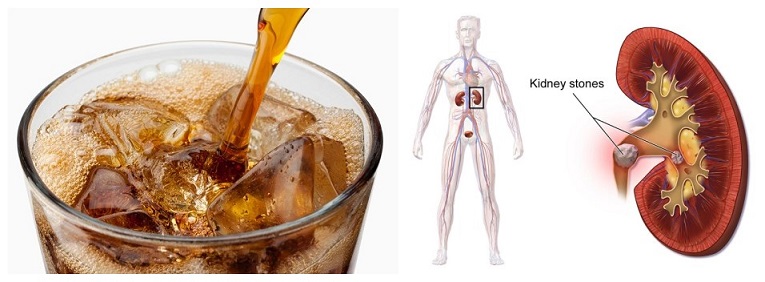
Then What Exactly Causes Kidney Stone?
Kidney stones form when the balance of urine constituents including salt, water and minerals change. The type of kidney stone one gets depends on the nature of change. For instance, calcium kidney stones form when the level of calcium in urine changes. Your urine balance may change for the following reasons:
- Failure to drink enough water: The substances in your urine including salts and minerals may form a stone if you do not take enough water.
- Diseases: Inflammatory bowel disease like Crohn’s disease and gout can affect the urine balance.
- Kidney stones may run in a family over several generations.
- Overproduction of hormones in the parathyroid is a rare cause of kidney stones. It may increase calcium levels in urine and probably cause calcium kidney stones.
Make Lifestyle Changes to Prevent Kidney Stones
Does soda cause kidney stones? Can you lower your risk of kidney stones by reducing your cola intake? This section outlines the lifestyle changes necessary to reduce your risk of kidney stones.
1. Take Water Throughout the Day
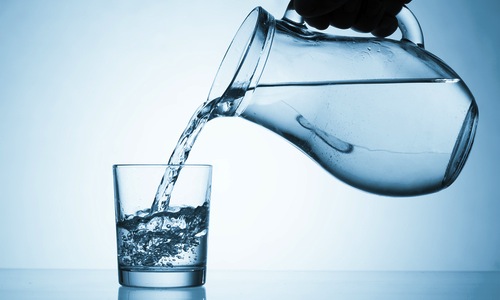 People with a kidney stone history should pass about 2.5 liters of urine every day. Your doctor may require you to keep records of your urine output to determine if you are taking enough water. Increase your water intake if you exercise regularly or live in a hot and dry climate. Light and clear urine is an indication that you are taking enough water.
People with a kidney stone history should pass about 2.5 liters of urine every day. Your doctor may require you to keep records of your urine output to determine if you are taking enough water. Increase your water intake if you exercise regularly or live in a hot and dry climate. Light and clear urine is an indication that you are taking enough water.
2. Cut Down Oxalate-Rich Foods
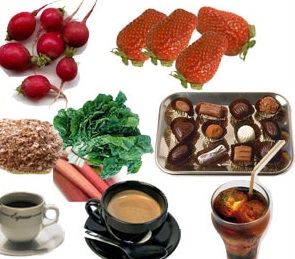
Control your intake of oxalate-rich foods such as nuts, spinach, swiss chard, soy products, rhubarb, tea, beets, sweet potatoes and okra.
3. 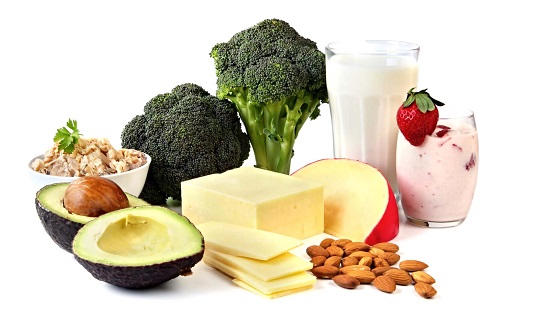 Eat Calcium-Rich Foods but Control Your Intake of Calcium Supplements
Eat Calcium-Rich Foods but Control Your Intake of Calcium Supplements
Eating foods rich in calcium does not increase your risk of kidney stones. Include them in your diet for better health. However, do control your intake of calcium supplements as they may increase your risk. You can reduce your risk of the condition by taking supplements with meals.
4. Get Enough Magnesium
Magnesium controls over 300 biochemical reactions in the body. Magnesium deficiency may lead to kidney stones. The mineral is essential for the absorption and assimilation of calcium in the body. Excessive consumption of calcium without enough magnesium in the body may cause kidney stones and other health conditions. Magnesium inhibits the combination of oxalate and calcium, which is the most common kidney stone.
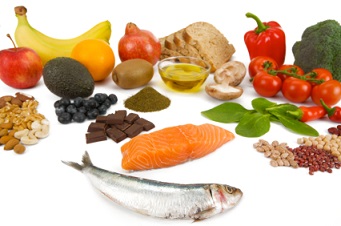 Sources of magnesium include green leafy vegetables such as spinach, nuts such as almonds, beans, and seeds including sesame, pumpkin, and sunflower seeds. Taking vegetable juice will ensure that you get enough magnesium. If you choose to take magnesium supplements, combine them with calcium supplements. The ratio of magnesium elemental to calcium elemental should be two to one.
Sources of magnesium include green leafy vegetables such as spinach, nuts such as almonds, beans, and seeds including sesame, pumpkin, and sunflower seeds. Taking vegetable juice will ensure that you get enough magnesium. If you choose to take magnesium supplements, combine them with calcium supplements. The ratio of magnesium elemental to calcium elemental should be two to one.
5. Exercise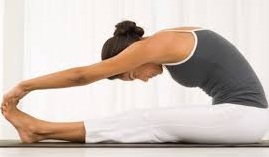
Physical inactivity especially when sedentary or bedridden increases your risk of kidney stones. The increased risk is partly because your bones may release higher amounts of calcium when inactive. Exercise can help to avoid it and also controls high blood pressure, which doubles the risk of getting kidney stones.
6. Control Your Sugar Intake
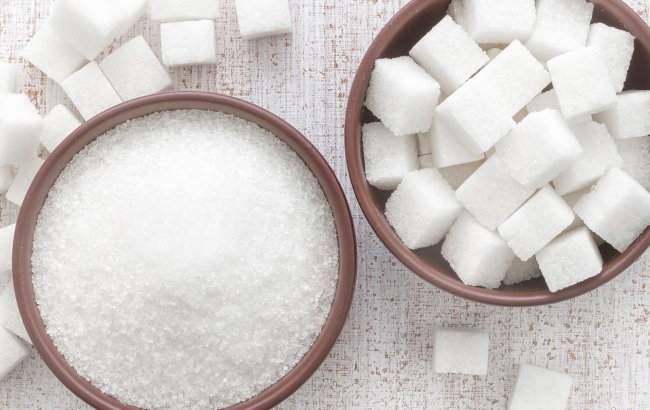 Does soda cause kidney stones? Not really, but does that mean that you can drink loads of it? Of course not. You must control your sugar intake to avoid kidney stones. High amounts of sugar including fructose and sodas interfere with the absorption of calcium and magnesium. High intake of soda and unhealthy drinks has contributed to the development of kidney stones in children.
Does soda cause kidney stones? Not really, but does that mean that you can drink loads of it? Of course not. You must control your sugar intake to avoid kidney stones. High amounts of sugar including fructose and sodas interfere with the absorption of calcium and magnesium. High intake of soda and unhealthy drinks has contributed to the development of kidney stones in children.
Drinking soda can worsen urine conditions that cause calcium oxalate kidney stones. Sugar can increase the size of your kidney and cause pathological changes in the kidney including kidney stones.
Kidney Stone Myth
Myth 1: Cranberry Juice Can Flush Out Kidney Stones
Fact: Cranberry juice may worsen your condition. Cranberry juice prevents urinary tract infections by solidifying urine but has a different effect on kidney stones. Cranberry contains high amounts of oxalate that can cause kidney stones.
Myth 2: A Kidney Stone Feels the Same as a Stomachache
Fact: A kidney stone feels more like a contraction and sometimes worse than labor. The pain is colicky and comes in intervals. One may experience a sharp sensation or pain similar to menstrual cramps.
Myth 3: Kidney Stones Cause Pain in the Lower Back
Fact: The pain starts in the lower part of the gut or abdomen when the kidney stone moves to the ureter. A kidney stone feels like a cork pushed down the ureter. The ureter is funnel-shaped and gets narrower towards the bladder. Kidney stones block the flow of urine, and the kidney may descend if the blockage persists for a long time. A descended kidney causes sharp pain and nausea.
Myth 4: You can Pass Multiple Kidney Stones
Fact: You can have multiple or single kidney stones. Most people get one stone especially the first time. However, you may experience another stone within four years after passing the first one.
Myth 5: You Can Pass a Kidney Stone in a Few Hours
Fact: Most people take 2-3 days to pass a stone. Some patients take up to four to six weeks to pass a stone if it is comfortable. However, such patients experience complications after some years. After answering the question, "does soda cause kidney stones?" you need to consult your doctor even after a stone and related pain passes.
